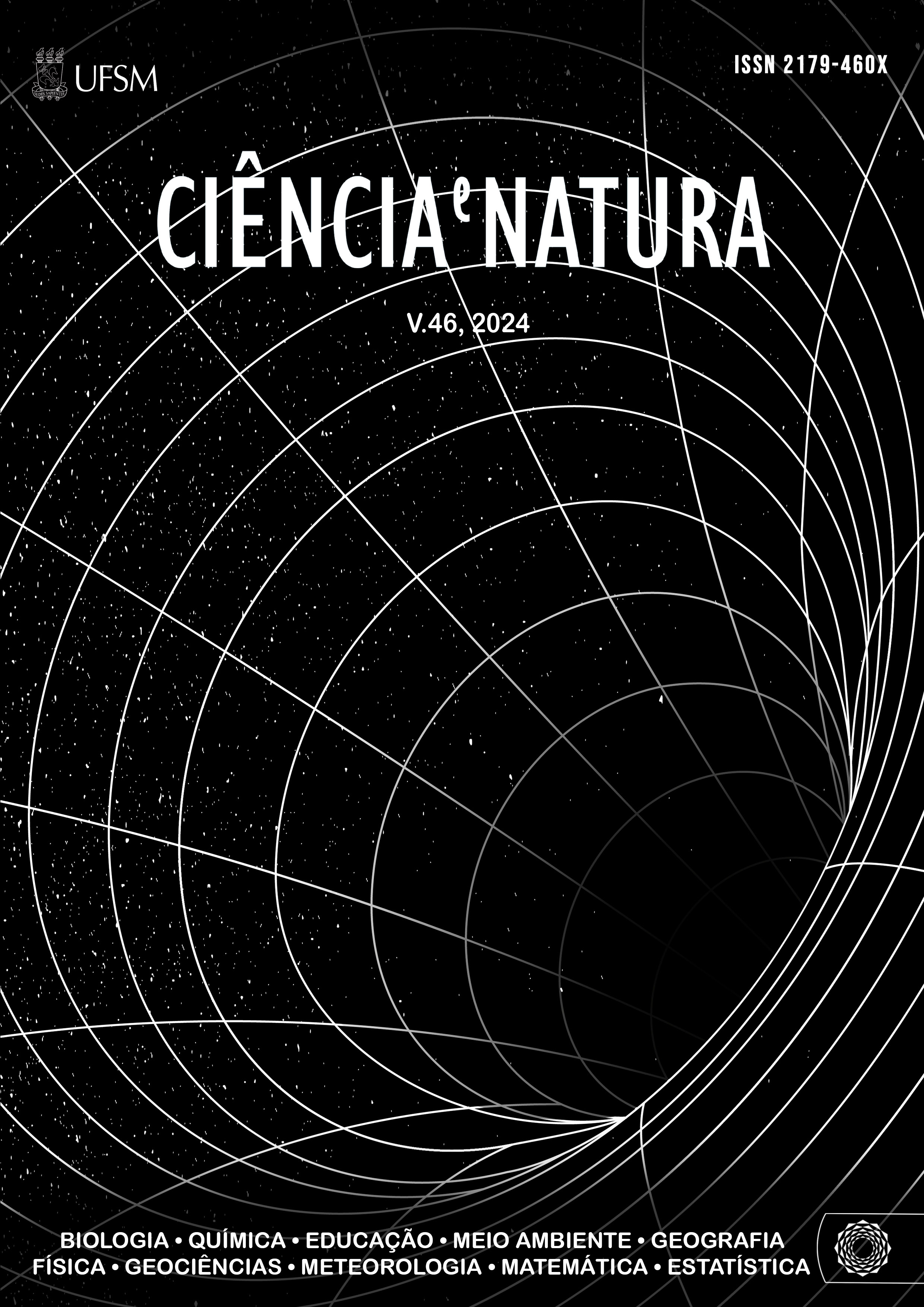Plastic: Recycling as a Potentiator of Science Teaching in Basic Education
DOI:
https://doi.org/10.5902/2179460X85715Keywords:
Learning, Recycling, SustainabilityAbstract
Three Pedagogical Moments carried out in the context of a sixth-grade class of Elementary School at a private school in the municipality of Santa Maria, Rio Grande do Sul state. It aimed to promote sustainability through plastic caps recycling with emphasis on Science and Technology in order to build environmental awareness in Basic Education as proposed by the Circular Movement. The activity was developed at PlastiMaker’s laboratory at Franciscan University in Santa Maria. As a result, it was observed that as they systematize information about plastic caps recycling, students were stimulated to collaborate in the strategies to minimize environmental damage caused by plastic. Another relevant aspect was the ability of students to promote a more responsible approach in their context related to residues, focusing on education for sustainability purposes.
Downloads
References
Brasil. Ministério da Educação. Base Nacional Comum Curricular. Educação e a Base (2017). Retrieved from: http://basenacionalcomum.mec.gov.br.
Dave Hakkens. Precious Plastic Mission (2019). Retrieved from: https://preciousplastic.com/en/mission.html.
Delizoicov, D., Angotti, J. A. (1990). Metodologia do ensino de ciências. São Paulo: Cortez.
Delizoicov, D., AngottI, J. A., & Pernambuco, M. M. (2002). Ensino de ciências: fundamentos e métodos. São Paulo: Cortez.
Freire, P. (1987). Pedagogia do Oprimido. 17 ed. Rio de Janeiro: Paz e Terra.
Geissdoerfer, M., Savaget, P., Bocken, N. M. P. & Hultink, E. J. (2017). The circular economy e a new sustainability paradigm? Journal of Cleaner Production, 143, 757-768. https://doi.org/10.1016/j.jclepro.2016.12.048. DOI: https://doi.org/10.1016/j.jclepro.2016.12.048
Kalmykova, Y., Sadagopan, M., & Rosado, L. (2018). Circular economy – from review of theories and practices to development of implementation tools. Resources, Conservation and Recycling, v. 135, 190-201. https://doi.org/10.1016/j.resconrec.2017.10.034. DOI: https://doi.org/10.1016/j.resconrec.2017.10.034
Movimento Circular. (2023). Retrieved from: https://movimentocircular.io/pt/noticias/o-plastico-na-era-circular-1.
Murray, A., Skene, K., & Haynes, K. (2017). The circular economy: an interdisciplinary exploration of the concept and application in a global context. Journal of Business Ethics, 3(140), 369-380. Retrieved from: https://link.springer.com/article/10.1007/s10551-015-2693-2 DOI: https://doi.org/10.1007/s10551-015-2693-2
Piatti, T. M., & Ferreira, R. A. (2005). Plásticos: características, usos, produção e impactos ambientais. Universidade Federal de Alagoas.
Unesco. Organização das Nações Unidas. (2017). Educação para os Objetivos de Desenvolvimento Sustentável: objetivos de aprendizagem. Retrieved from: https://unesdoc.unesco.org/ark:/48223/pf0000252197/PDF/252197por.pdf.multi.
Downloads
Published
How to Cite
Issue
Section
License
Copyright (c) 2024 Ciência e Natura

This work is licensed under a Creative Commons Attribution-NonCommercial-ShareAlike 4.0 International License.
To access the DECLARATION AND TRANSFER OF COPYRIGHT AUTHOR’S DECLARATION AND COPYRIGHT LICENSE click here.
Ethical Guidelines for Journal Publication
The Ciência e Natura journal is committed to ensuring ethics in publication and quality of articles.
Conformance to standards of ethical behavior is therefore expected of all parties involved: Authors, Editors, Reviewers, and the Publisher.
In particular,
Authors: Authors should present an objective discussion of the significance of research work as well as sufficient detail and references to permit others to replicate the experiments. Fraudulent or knowingly inaccurate statements constitute unethical behavior and are unacceptable. Review Articles should also be objective, comprehensive, and accurate accounts of the state of the art. The Authors should ensure that their work is entirely original works, and if the work and/or words of others have been used, this has been appropriately acknowledged. Plagiarism in all its forms constitutes unethical publishing behavior and is unacceptable. Submitting the same manuscript to more than one journal concurrently constitutes unethical publishing behavior and is unacceptable. Authors should not submit articles describing essentially the same research to more than one journal. The corresponding Author should ensure that there is a full consensus of all Co-authors in approving the final version of the paper and its submission for publication.
Editors: Editors should evaluate manuscripts exclusively on the basis of their academic merit. An Editor must not use unpublished information in the editor's own research without the express written consent of the Author. Editors should take reasonable responsive measures when ethical complaints have been presented concerning a submitted manuscript or published paper.
Reviewers: Any manuscripts received for review must be treated as confidential documents. Privileged information or ideas obtained through peer review must be kept confidential and not used for personal advantage. Reviewers should be conducted objectively, and observations should be formulated clearly with supporting arguments, so that Authors can use them for improving the paper. Any selected Reviewer who feels unqualified to review the research reported in a manuscript or knows that its prompt review will be impossible should notify the Editor and excuse himself from the review process. Reviewers should not consider manuscripts in which they have conflicts of interest resulting from competitive, collaborative, or other relationships or connections with any of the authors, companies, or institutions connected to the papers.







